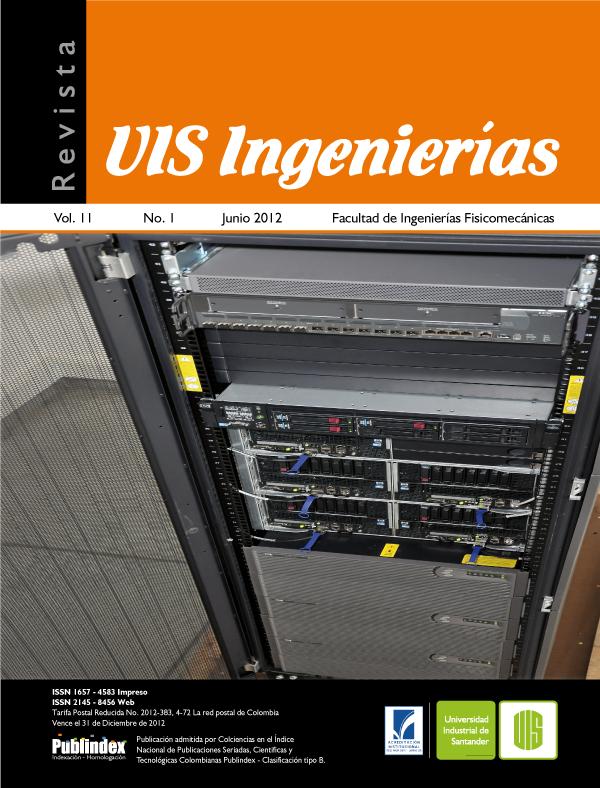Experimental study of the strategies of On-Off control and continuous control in a refrigeration system
Published 2012-06-15
Keywords
- Cooling,
- energy consumption,
- ON-OFF,
- PID,
- fuzzy logic
- partial load ...More
How to Cite
Abstract
This paper presents an experimental study, in several scenarios of energy consumption in a vapor compression refrigeration system when it operates using ON-OFF, linear and fuzzy logic control schemes. The proposed study scenarios pretend to emulate real operation conditions in refrigeration systems such as a disturbance produced by the door opening. In the test bench used in this study the ON-OFF, PID and fuzzy logic control strategies were implemented via Labview® and National Instruments® hardware. The system provides the energy consumption in each control strategy for a given set of conditions. In addition, the vapor temperature tuning is observed. The results reveal larger energy savings, near 25% , via linear control and fuzzy logic and a satisfactory tracking of the reference compared with ON-OFF. The results of this study can be used as support information when determining a control scheme for a large refrigeration system.
Downloads
References
- Unezaki, F.; Anzai, Y.; Ikeda, T.; Matsuoka, F., “Energy Saving Refrigeration System for Supermarket”, Fourth International Symposium on Environmentally Conscious Design and Inverse Manufacturing, 2005. Eco Design 2005, vol.12, no 14, pp.482-483, Dec. 2005.
- Wicks, F., “2nd law analysis of ON/OFF vs. frequency modulation control of a refrigerator”, Energy Conversion Engineering Conference and Exhibit, 2000. (IECEC) 35th Intersociety, vol.1, pp.340-344 , 2000.
- Sousa, G.C.D.; Bose, B.K.; Cleland, J.G., “Fuzzy logic based on-line efficiency optimization control of an indirect vector controlled induction motor drive”, International Conference on Industrial Electronics, Control, and Instrumentation, Proceedings of the IECON ‘93., pp.1168-1174 vol.2, Nov. 1993.
- Tobi, Toshikazu, “A practical application of fuzzy control for an air-conditioning system”, International Journal of Approximate Reasoning, Vol.5, (3), pp. 331-348, May 1991.
- Becker, M.; Oestreich, D.; Hasse, H.; Litz, L.; , “Fuzzy control for temperature and humidity in refrigeration systems”, Proceedings of the Third IEEE Conference on Control Applications, 1994., vol.3, pp.1607-1612, Aug 1994.
- Orhan Ekren, Savas Sahin, Yalcin Isler, “Comparison of different controllers for variable speed compressor and electronic expansion valve”, International Journal of Refrigeration, Volume 33, Issue 6, September 2010, Pages 1161-1168.
- Ziegler, J.G, and N. B. Nichols, “Optimum setting for Automatic controllers”, Trans ASME, vol 64, pp 759, 1942.
- Ross, T. 2004. “Fuzzy Logic with Engineering Applications”, Chichester, UK: Wiley.
- Aprea C, Mastrullo R, Renno C, “Fuzzy control of the compressor speed in a refrigeration plant”, International Journal of Refrigeration, Vol. 27 (6), pp. 639-648, 2004.

